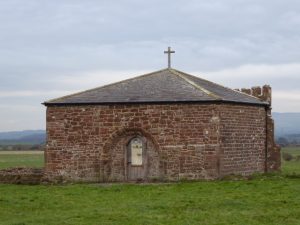The League of Nations Union (LNU) programmes were designed to disseminate information and discussion on the League of Nations in an interesting way to catch members’ interest. One such occasion was the visit in September 1924, reported in the ‘Lancaster Observer’, by a party of about 50 members of the Lancaster LNU to the excavations at Cockersands Abbey, an obvious choice for an outing as both the owner of the land, Mr Dalton of Thurnham Hall and the local Vicar, Rev. C. E. Golland MA, were Lancaster LNU Vice-Presidents.
After the visit, Rev. Golland gave them ‘a very interesting and instructive address on “The Founders of Cockersands and the League of Nations Idea”,’ presumably comparing medieval and modern international organisations. The group then had tea in the new Glasson Dock Memorial Hall, after which two Rhodes Scholars ‘who were giving up part of their vacation from Oxford [University] to the work of the League of Nations Union’ gave talks. ‘Bill’ Airey from New Zealand talked about the importance of public opinion in the success of the League of Nations, while the American, Mr Frazer, spoke on the need for Europeans to show their support for the League to encourage the US to join it. (1) Rev. E. J. Lawson, an Oxford graduate, gave a ‘hearty vote of thanks’ to the young men.
References/Further Reading:
(1) M. Bassett, 1998. Airey, Willis Thomas Goodwin. Dictionary of New Zealand Biography, vol. 4. Te Ara – the Encyclopedia of New Zealand.
‘Bill’ Airy (1897-1969) fought with the New Zealand Expeditionary Force in the War, graduated in New Zealand in 1920 and obtained a Rhodes Scholarship to Oxford, participating in debates about the League of Nations. He became a leading left-wing historian in New Zealand. Nothing is known about Mr Frazer.
Lancaster Observer, 28 Sep 1924.


